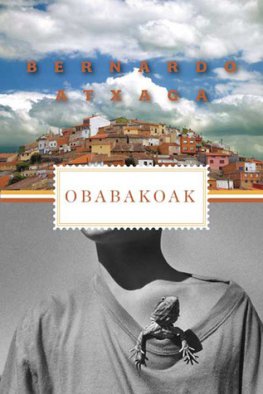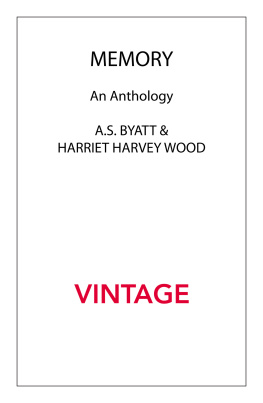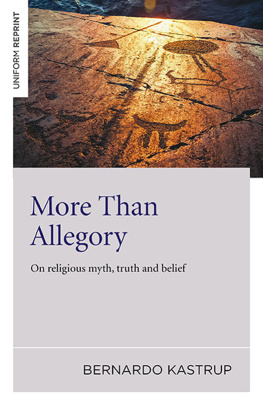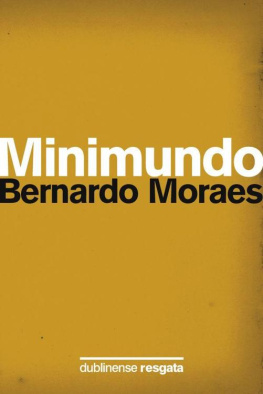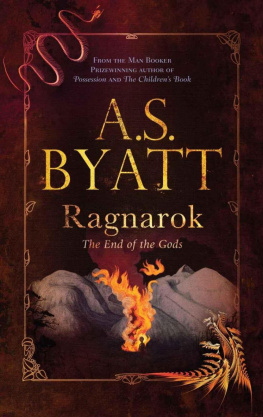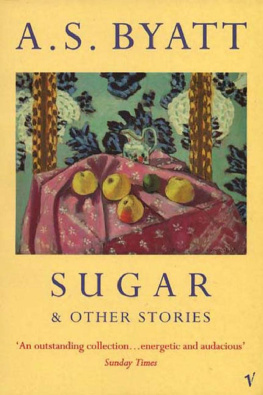Bernardo Atxaga - Obabakoak
Here you can read online Bernardo Atxaga - Obabakoak full text of the book (entire story) in english for free. Download pdf and epub, get meaning, cover and reviews about this ebook. year: 2010, publisher: Graywolf Press, genre: Prose. Description of the work, (preface) as well as reviews are available. Best literature library LitArk.com created for fans of good reading and offers a wide selection of genres:
Romance novel
Science fiction
Adventure
Detective
Science
History
Home and family
Prose
Art
Politics
Computer
Non-fiction
Religion
Business
Children
Humor
Choose a favorite category and find really read worthwhile books. Enjoy immersion in the world of imagination, feel the emotions of the characters or learn something new for yourself, make an fascinating discovery.
- Book:Obabakoak
- Author:
- Publisher:Graywolf Press
- Genre:
- Year:2010
- Rating:3 / 5
- Favourites:Add to favourites
- Your mark:
- 60
- 1
- 2
- 3
- 4
- 5
Obabakoak: summary, description and annotation
We offer to read an annotation, description, summary or preface (depends on what the author of the book "Obabakoak" wrote himself). If you haven't found the necessary information about the book — write in the comments, we will try to find it.
Bernardo Atxaga: author's other books
Who wrote Obabakoak? Find out the surname, the name of the author of the book and a list of all author's works by series.
Obabakoak — read online for free the complete book (whole text) full work
Below is the text of the book, divided by pages. System saving the place of the last page read, allows you to conveniently read the book "Obabakoak" online for free, without having to search again every time where you left off. Put a bookmark, and you can go to the page where you finished reading at any time.
Font size:
Interval:
Bookmark:
Bernardo Atxaga
Obabakoak
Translators Note
Obabakoak was originally written in Basque and published by Editorial Erein in 1988. This English translation is based on the authors own Spanish version, published by Ediciones B in 1989.
I would like to take the opportunity to thank Bernardo Atxaga, Neil Belton, Annella McDermott, Faye Carney, and Philip Polack for all their help and advice.
The Game of the Goose
The Game of the Goose (el juego de la oca) (first mentioned on p. 134) is still played in other parts of Europe (for example, le jeu de loie in France, il gioco delloca in Italy). It is played on a circular board of sixty-three squares, the sixty-third being occupied by Mother Goose. The first person to reach square sixty-three wins. Geese also appear on other squares and if you land on one of these, you jump forward to the next goose and get another throw of the dice. If you land on less fortunate squares such as the maze, the prison, or the square symbolizing death (a skull or skeleton), you must either wait for another player to take your place, go back several squares, or return to square one.
Obabakoak
CHILDHOODS
Esteban Werfell
ESTEBAN WERFELLS BOOKS, mostly leather-bound and ranged in serried ranks along the shelves, covered almost every inch of the rooms four walls. Those ten or twelve thousand volumes were the summation of two lives, his own and his fathers, and when he sat down among them to write, as he did on that February day, they created a warm enclave, a high protecting wall separating him from the outside world. Like many of the books, the old oak table at which he wrote was another reminder of his father; when still very young, hed had it brought there from the family home in Obaba.
There was, however, one chink in that wall of paper, pages, and words, a window through which, while he wrote, Esteban Werfell could see the sky, the willows, the lake, and the little house built there for the swans in the citys main park. Without really impinging on his solitude, the window made an inroad into the darkness of the books and mitigated that other darkness that often creates phantoms in the hearts of men who have never quite learned how to live alone.
For some minutes Esteban Werfell contemplated the cloudy, grayish white sky of that February day. Then, looking away, he opened one of the drawers in his desk and took out a notebook with stiff covers, bearing the number twelve, identical down to the last detail with the other eleven notebooks he had already filled, which contained his personal journal.
They were nice, those notebooks with their stiff covers, he liked them. He often used to wonder whether he didnt misuse them, whether the stories and reflections he noted down in them did not perhaps turn them from the proper destiny that might otherwise await a notebook, especially one with stiff covers.
Perhaps it was foolish to think that way about something like a notebook. It probably was. But he couldnt help it, still less when he was about to start a new one, as he was then. Why was he always thinking about things he didnt want to think about? Once his father had said to him: It isnt the fact that youve got a few batty ideas that worries me, its just that theyre always the same batty ideas. It was true, but hed never understood why he was so drawn to such ideas.
Whatever the reason, the force propelling him toward them was very strong, and Esteban Werfell couldnt resist the temptation to look up at the shelf where he kept the other eleven notebooks. There, half hidden among various geographical treatises, were the pages that bore witness to his life, the pages that contained all its most beautiful moments, its most important events. Not that they were a treasure. Theyd lost any brilliance they once had. Rereading them was like perusing papers smeared with ashes; rereading them he felt ashamed and saw how the desire for sleep and oblivion still grew within him.
Notebooks full of dead letters, he murmured to himself. Even that expression wasnt new.
But he couldnt allow such thoughts to distract him from the task hed sat down at the table to perform, nor, as had happened on countless other occasions, allow them to carry him from one sad memory to another, deeper and deeper down, to a land that, long ago ever since his days as a student of geography hed named the Cape of Despair. He was a grown man now, able to fight against his own compulsions, and fight he would, by filling that new notebook.
Esteban Werfell picked up his pen the one with the wooden shaft that he used only when writing in his diary and dipped it in the inkwell.
17 February 1958, he began. He wrote in a beautiful, neat hand.
Outside the window the sky had turned completely gray and a fine, invisible rain was darkening the ivy that covered the swans house. The sight of it made him sigh. He would have preferred a different kind of weather. He didnt like the park being empty.
He sighed once more, then dipped his pen in the ink again and bent over the notebook. I have returned from Hamburg he wrote with the intention of writing a memoir of my life. But I will not do so in the ordered and exhaustive manner of one who, perhaps quite rightly, holds himself to be the mirror of an age or a society. That, of course, is not my case and that is not how I will proceed. I will restrict myself to recounting what happened one afternoon long ago, when, to be exact, I was fourteen years old, and the important consequences that afternoon had for me. For a man already in the autumn of his life a few short hours may not seem a matter of much significance, but it is all I have to tell, indeed it is the only thing worth telling. And perhaps, given the life I have led, it is not such a small thing. After all, I dedicated myself to teaching and a life spent sitting at a teachers desk is a surer recipe for constipation than it is for adventure.
He sat back in his chair to wait for the ink to dry. The day was still gray, but the rain was much heavier than it had been a few minutes earlier and the sound it made, the dull murmur of rain on grass, was clearly audible in the room. And there was a change too around the lake: The swans had come out of their house now and were beating their wings with unusual vigor. Hed never seen the swans like that before. Did they enjoy getting wet? Or was it the lack of spectators that cheered them? He didnt know, and it really wasnt worth wasting time on such stupid questions, time better spent going over what hed just written.
He never got off to a good start. The words refused to give faithful expression to what was demanded of them, as if they were lazy, or as if they lacked the energy to do so. His father used to say: Thought is like sand and when we try to grasp a fistful of it, most of the grains trickle out between our fingers. And it was true. For example, here he was proposing to write a memoir, but it would have been more exact to describe it as a meditation, because that in fact was what he wanted to write: a fine meditation on the events of one afternoon in his adolescence. And that wasnt the only blunder, there were others.
He could, of course, cross out what hed written and start again, but he didnt want to. It was against his rules. He liked his pages to look immaculate, his as well as other peoples, and he felt proud that his scrupulousness had led his students to nickname him after a well-known brand of soap. Anyway, why worry about finding a good beginning? Hed make mistakes on the second attempt too. There would always be mistakes. It was better to press on, getting it right as he went along, gradually making amends for his poor beginning.
He looked out at the park again. There were no swans on the lake now, theyd retreated to their house. No, they didnt like the February rain either.
Font size:
Interval:
Bookmark:
Similar books «Obabakoak»
Look at similar books to Obabakoak. We have selected literature similar in name and meaning in the hope of providing readers with more options to find new, interesting, not yet read works.
Discussion, reviews of the book Obabakoak and just readers' own opinions. Leave your comments, write what you think about the work, its meaning or the main characters. Specify what exactly you liked and what you didn't like, and why you think so.

